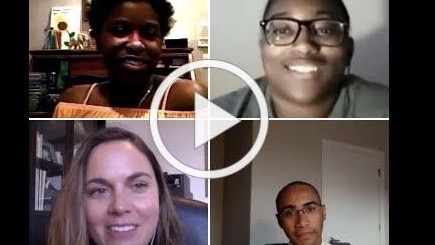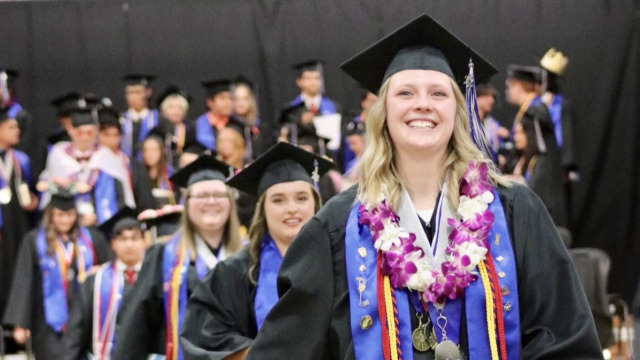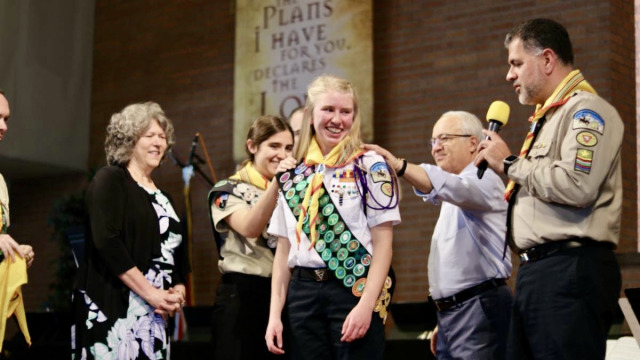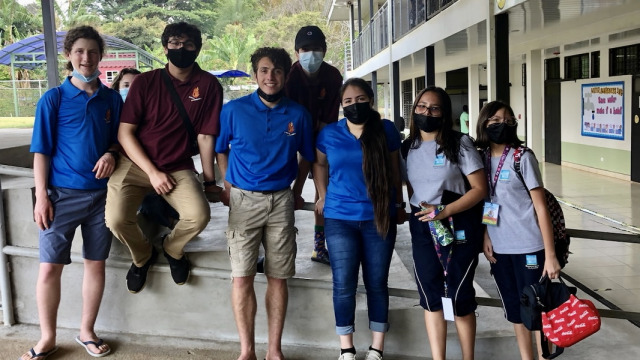By Jill Harlow – Loveland, Colorado . . . At Campion Academy, as we seek to become more Christ-like, we want to do more than just write statements against racism, we want to listen and learn how we can do better. In my interview with Rob Pride from our last issue, he recalled that racial issues were never something discussed at Campion when he attended and he challenged us to have those conversations. So this week, I sat down with two current students and an alumnus to talk about their experience being black and attending Campion Academy.
The following is a summary of our conversation.
How has the killing of George Floyd and others we’ve seen recently, and the following protests impacted you personally?
Amira: “Mainly, it opened up my eyes that the world hasn’t changed and that it’s still so cruel and it’s just sad.”
CJ: “There’s a lot of tension. I feel like a lot of people have been tip-toeing around me, I don’t know how to explain it, it’s like they’re walking on eggshells or something because of everything that has happened.”
Emma: “I feel like it has definitely opened my eyes to how serious racism is in America, and it has me thinking about ways that we can make it better and really talk to each other and have these difficult conversations. I feel like before it was just kind of avoided and everyone knew about it, but we didn’t really talk about it. There’s a lot of tension because now we are bringing up an old issue to the surface, and it’s hard.”
Did you feel you experienced racism at Campion or at other points in your life?
CJ: “I think since I was in the Adventist system for so long, I never really thought about it until after I graduated and I came back home and was talking with my brothers about things. Some things that happened could have been seen as racism, but I think how they said it, I didn’t see it as racism. I never thought about it going through Campion. I’m pretty sure there were racist jokes, but no one didn’t like me because of the color of my skin and that was a cool thing about Campion and Adventist education in general.”
Amira: “I honestly haven’t. I’ve spent a lot of time in the Adventist school system and attended public middle school, but everyone was cool there too. Again, there are racist jokes, but I agree that no one has ever not liked me because of the color of my skin. There was a time in third grade a girl wouldn’t share with me because she said she “didn’t like black people.” That really just broke my heart to be denied something just because of something I can’t change and is not my fault. It really opened up my eyes. I haven’t experienced direct racism since then, but it really just blows my mind that you can even think that way.”
Emma: “Again, I didn’t really experience that much and I’ve been in Adventist schools since kindergarten, but people have said racist comments to other black kids at my school and it also affects me. I’ve even heard kids make racist jokes and it just shows you how much of a problem it is, how it affects everyone, and how we are teaching our kids. I haven’t experienced it a lot because I feel like I have had more privilege than other black kids that I know being raised in white family.
What can we do at Campion to be better at being anti-racist?
CJ: “I was talking to my friend the other day, and he grew up in Florida, and until he left that area he didn’t realize that racism was a big thing because where he was from everyone was cool with everyone, but once he got out of that, he realized these things actually happen. So, that might be similar to students coming out of Campion. I think we just need to educate people to let them know that it is okay to have black friends and that they are not really different, other than the color of their skin.”
Amira: “Honestly, Campion does such a great job. Maybe it’s because I’m an international ambassador, but we are so accepting. I’ve never seen so many people come together and accept different cultures, different languages–it’s beautiful. I do believe that education is important to teach everyone that we are not different, we are all people, and to be sensitive that some jokes aren’t funny because it’s inappropriate. I feel like that is something that should be also said.”
Emma: “I think educating people that we are all the same is good, but we also need to educate that we are different and to embrace the beauty that we have in different cultures. The more you learn about another culture, the more you can learn about another person. I feel that would just make people more open to talk about stuff, and it would help us not feel like we are so different if we learned about each other’s cultures. And also accountability, like if someone makes a racist comment, rather than just pushing it off, or saying it’s not a big deal, really actually attack that issue and explain why it hurt us, or why it is inappropriate.”
What about in our churches?
Emma: “I definitely think that bringing the conversation on race into our churches is also important. The Bible does talk about race, and just because we are in church, doesn’t mean that it’s not important and it can’t be addressed. Someone might be feeling a certain way about a racial issue, but because we are not talking about it, it’s just staying inside and they might feel like they have to be someone different at church. I always feel like I have to be someone else at church, and it has to do with my skin and maybe with the way I was raised too.”
What do you wish would be the biggest change in society at large as a result of this movement?
Emma: “My main biggest hope is that we increase accountability. A lot of these killings were happening before George Floyd and the reason why they were able to do that because they got off the hook and no one dealt with it. I hope we start to deal with it more, and if it happens once, we deal with it right then and there.”
Amira: “As Emma said, I want more accountability. But I really want more social awareness. I want everyone to realize there is a problem. I want everyone to stand up for what is right and when they see a problem, to help and talk about it so we can deal with it. I feel like in the past, that was not the case at all. We weren’t talking about it. It was just being swept under the rug and this really has all of us coming together and shown us what we can do as a whole.
CJ: “Well, I want Jesus to come sooner! I want people to realize with these killings that people just want justice and they’ve been waiting for that for a while. And it hasn’t happened! I want people to understand that just because people of color want justice for these killings that doesn’t mean that we want anything bad to happen to people of other races. We are not trying to overtake the country, we just want justice. We want to be treated like everyone else. I think what would help is more education and maybe more training for officers. More training in how to de-escalate situations, because there have been other times when the situation was de-escalated and no one had to die and deadly force didn’t have to be used.
To listen in to the full conversation, click here.
–Jill Harlow is communication director for Campion Academy




